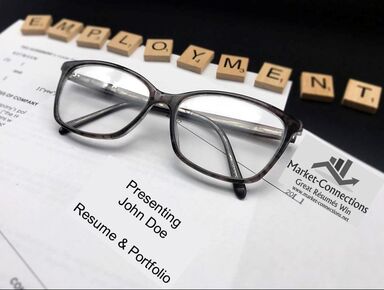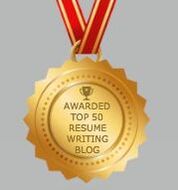A new resume to stand outYou’ve never had a résumé before. Maybe you’ve never needed one. But now you do. And you don’t know where to start. The primary purpose of the résumé is to get you the opportunity to interview for the job. Everything you do — and include — should focus on this goal. Your résumé should be targeted to be effective. If you don’t know what you want, it’s going to be difficult for the reader to know. The first step is to determine what skills, experience, and education are needed for your target job. The late résumé guru Yana Parker used to say, “A résumé without a job target is like a book without a title.” Understand that your résumé is not a “cut-and-dried job report.” It will not — and should not — include everything you’ve ever done in your career. It still needs to be accurate, but you don’t need to list every job you’ve ever held. Nor do you have to list every aspect of the responsibilities that you held. Your job descriptions on your résumé should not be extremely detailed because your résumé is not a Training Manual for other people to learn how to do your job. Your résumé should only give your audience an idea about "your results". If they are interested in details pertaining to "how" you produced those results, they will ask you in the interview. So, please learn to make the distinction between an actual "job description" and effective "resume content". Your résumé is not a legal document, unlike a job application that asks you to list all your career experience and that you sign, acknowledging that the information is accurate and complete. Instead, your résumé is a marketing document. The most important thing to remember is: The résumé is not about what you want — it’s what you can offer to an employer. In her book, “Résumé Magic,” author Susan Britton Whitcomb explains there are 10 main reasons that motivate employers to hire. These include your ability to help the company:
Everything you put in the résumé — or don’t put in the résumé — should relate to the job that you’re seeking, demonstrating to the person with the authority to hire you for that job what you can do for the company in that position. When trying to decide whether or not something is relevant, think about the Hiring Manager. Technology has changed the hiring process in some ways, but the essence is still the same: How can you attract the attention of the person who has the power to hire you and get the opportunity to get in front of him or her and demonstrate you’re the right fit for the job? If you are submitting your résumé online, it’s very likely that your résumé will go into an applicant tracking system, which is software that helps hiring managers track applications and select which candidates to interview. Applicant tracking systems — and the integration of technology into the application process — underscore the importance of tailoring your résumé and cover letter for the role you’re seeking. If there are specific words and phrases used in the job announcement, make sure those are included in your résumé. You can’t simply create a résumé and use it to apply to 100 different jobs. Not only is that inefficient, but it’s ineffective. Résumés are not “one size fits all.” You can’t expect a résumé focused on one type of role to open doors for you in another career field. A résumé written for a job as a Middle School Principal is not likely to generate interviews for a role as a Sales Professional. Nor is a résumé written for a Social Media Specialist going to work for someone applying as an Executive Assistant. There may be aspects of the résumé that you can use in both versions of the résumé, but you can’t use the same document. Nor can you copy someone else’s résumé — even if it’s incredible — and expect it to work for you in landing your dream job. Even if the résumé lands you an interview, you need to be able to speak to the experience and accomplishments described. You not only have to walk the walk, you have to talk the talk. Tell a story with your résumé. How did what you’ve done in the past lead you to the right combination of skills, experience, and education for the job you want? Who are you? What sets you apart? What can you do for the company that no one else does? If you are a recent graduate with little to no work experience in the field you’ve studied and are targeting, your strongest qualifications are your just-completed education and any internships, projects, or relevant volunteer experience. Resume Tips 2020
|
Categories
All
powered by Surfing Waves
AuthorMandy Fard is a Certified Professional Resume Writer (CPRW, CMRW) and Recruiter with decades of experience in assisting job seekers, working directly with employers in multiple industries, and writing proven-effective resumes. Archives
July 2024
|
-
Greater Los Angeles
and Kern County
-
[email protected]
.




 RSS Feed
RSS Feed



